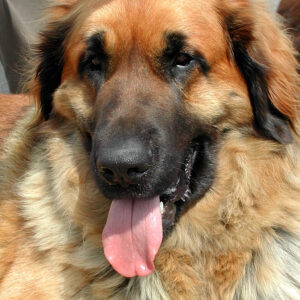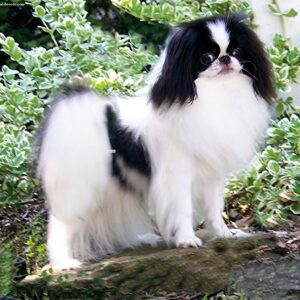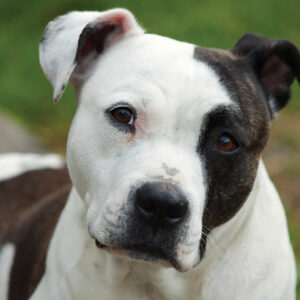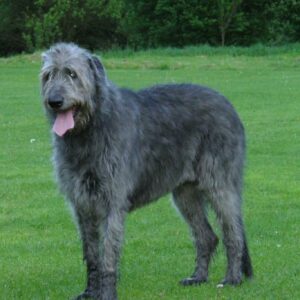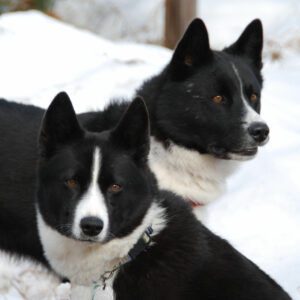Are you looking for a cute, friendly and intelligent companion? Look no further than the Miniature Schnauzer! This breed is a popular pet all over the world, loved for their loyal and affectionate nature. In this post, we’ll talk about the history, origins, characteristics, choosing the best foods, training, and taking care of Miniature Schnauzers. Keep reading to learn everything you need to know!
History
The Miniature Schnauzer breed has been around since the 1800s, originated in Germany, where it was bred from the Standard Schnauzer that was used for guarding and herding purposes. Miniature Schnauzers were bred as smaller companions for people living in urban areas, and they quickly became very popular. They were even used as watchdogs in World War I and World War II.
After the war, the breed was nearly extinct, but they were saved by a few dedicated breeders. Since then, Miniature Schnauzers have been bred for their loving demeanor, spunky character and fun personalities. They are now one of the most popular dog breeds in the world.
Miniature Schnauzers were recognized by the American Kennel Club in 1926 and have since become one of the most popular dog breeds in the United States. They make excellent family pets and are known for their devotion to their owners.

Location of Origins
As mentioned earlier, Miniature Schnauzers originated in Germany, where they were bred to work on farms, controlling pests and rodents. They were also kept by homeowners as pets, where they proved their loyalty and obedience. They have since become a worldwide favorite and enjoyed by pet owners in different countries.
Characteristics
Miniature Schnauzers are small dogs, weighing between 11 and 20 pounds and standing between 12 to 14 inches tall. They have a square-shaped head and a wiry coat that comes in various colors such as black, white, salt, and pepper. One of their most distinguishing features is their signature beard and eyebrows, which make them look charming and distinguished.
This breed is highly intelligent, loyal and loves spending time with its family. They are excellent watchdogs and are known for their vocal abilities. However, with proper training, they can learn when to bark and when not to, making them excellent around other people and animals. Miniature Schnauzers enjoy exercise, and a daily walk and playtime on the yard will keep them happy and healthy.
They are highly adaptable dogs, thriving in almost any environment. They are happy in city apartments, suburban homes or country farms. However, they will require plenty of attention and affection from their owners to keep them happy and well-behaved.

Choosing the Best Foods
Feeding your Miniature Schnauzer is a crucial part of their care, ensuring they stay healthy and active. You should choose high-quality dog food containing the right balance of protein, carbohydrates, vitamins, and minerals. You may also want to consider feeding your dog a hypoallergenic diet if they have food-related allergies.
As Miniature Schnauzers are prone to weight gain, it’s essential to provide a balanced diet with the right amount of food at each meal. Overfeeding can lead to obesity and other health problems, making it important to measure your dog’s food and limit their snacks and treats.
It’s also important to provide plenty of fresh water for Miniature Schnauzers, as they can become dehydrated easily. Ensure that you change their water daily and have more than one water bowl available in case they knock one over or move one in their playtime.

Training
Training Miniature Schnauzers is crucial for a harmonious bond between pet and owner. They are highly intelligent and respond well to positive reinforcement techniques, making them great learners. You can start training your Miniature Schnauzer as early as eight weeks, teaching them basic commands such as ‘sit,’ ‘stay’, and ‘come’.
Ensure your training sessions are short, consistent and use positive reinforcement techniques such as treats or affection. Miniature Schnauzers aim to please their owners, making them more obedient during training sessions, especially when praise is involved.
Socialization is equally important for Miniature Schnauzers as it will minimize anxiety and aggression levels around unfamiliar people, situations or other animals. Start socializing your pet as early as possible, introducing them gradually to new people and animals, reinforcing positive behavior during playtime, and rewarding them with treats as a form of encouragement or positive reinforcement.

Taking Care
Miniature Schnauzers are relatively low maintenance dogs when it comes to grooming. However, they will require daily brushing to prevent matting and tangling of their hair. It’s recommended to trim their hair every two months professionally, or at home with appropriate scissors or clippers.
Their ears may require extra attention as failure to clean them can lead to ear infections. To clean your Miniature Schnauzer’s ears, use a recommended cleaning solution and a cotton ball, wiping gently without pushing too deep into the ear canal. Ensure to rinse the ear and towel dry to prevent moisture accumulation.
As previously mentioned, Miniature Schnauzers are prone to weight gain, and you should maintain an exercise routine to ensure they remain healthy and fit. A daily walk or playtime outside will help them burn calories and prevent obesity that can lead to severe health problems.
FAQs
Q: How long do Miniature Schnauzers Live?
A: Miniature Schnauzers have an expected lifespan of 12-15 years when fed a well-balanced diet, maintained at an appropriate weight, and given plenty of exercise.
Q: Are Miniature Schnauzers good with children?
A: Yes, Miniature Schnauzers are great with children as they are loyal, intelligent, and friendly dogs. However, it’s crucial to ensure they are well socialized and trained, and young kids should always be supervised around dogs.
Q: Are Miniature Schnauzers Hypoallergenic?
A: Yes, Miniature Schnauzers are hypoallergenic dogs, and they have non-shedding coats that produce less dander, eliminating potential allergic reactions caused by pet hair.
Conclusion
In summary, Miniature Schnauzers are fantastic pets that will bring joy, love, and loyalty to your life. They are intelligent, adaptable, and easy to train making them ideal for families with kids, single people or seniors. Maintaining proper care such as feeding them well, regular exercise, and grooming will ensure they are happy and healthy throughout their lifetime. Start your journey with owning a Miniature Schnauzer today and enjoy the companionship they bring!

